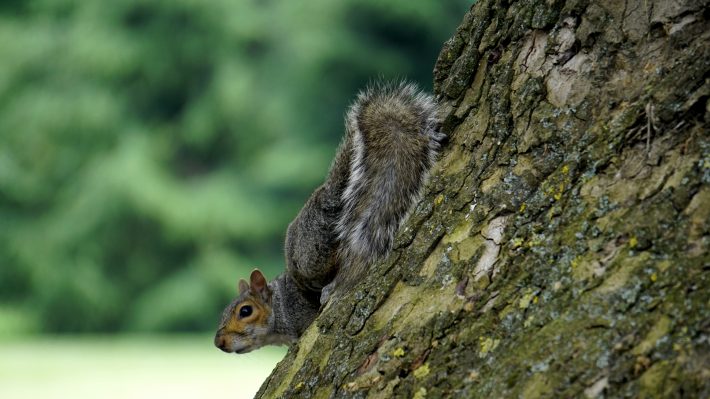New IPBES report delivers “wakeup call” on the growing global threats of invasive species
Global efforts to halt biodiversity loss by 2030 could be jeopardised by rising cases of invasive species. A new report from IPBES reveals the overwhelmingly negative impacts biological invasions have on people and nature, but shines hope on a turning tide for better, more collaborative, management.

Invasive alien species are one of the five major drivers of biodiversity loss. In the first comprehensive assessment of the global impact and management of biological invasions, the Intergovernmental Science-Policy Platform on Biodiversity and Ecosystem Services (IPBES) Invasive Alien Species Assessment found that invasive species are either fully or partially responsible for 60% of extinctions across the world.
Not only are biological invasions decimating plant and wildlife populations and reducing the functioning of crucial ecosystem services, they also come with a hefty price tag. The new report reveals the global economic cost of invasive alien species has quadrupled every decade since 1970, and exceeded $423 billion annually in 2019.
Professor Rick Stafford, Chair of the BES Policy Committee said:“This report is a wakeup call for the world on the growing threats that invasive alien species pose for nature, human health and livelihoods. It lays out the growing economic costs of biological invasions and provides a comprehensive overview of their many negative impacts on people and nature, yet policies for controlling and preventing them have so far been insufficient.”
Last year, the UK and other countries signed the Kunming-Montreal Global Biodiversity Framework, committing to reducing the introduction and establishment of priority invasive alien species by at least 50% by 2030.
Invasive alien species seriously jeopardise commitments agreed at COP15 to halt and reverse biodiversity loss by 2030.
However, these targets may become increasingly difficult to reach as the accelerating global economy, intensified and expanded land- and sea-use change, combined with climate change and other exacerbating drivers, will likely lead to increases in invasive alien species worldwide, according to the new report.
Stafford added:“With the knowledge that human activities have already led to 37,000 alien species worldwide, it is alarming that the rate of introductions is still increasing. Invasive alien species seriously jeopardise the UK and other countries’ efforts towards meeting the commitment agreed at COP15 to halt and reverse biodiversity loss by 2030.”
No ecosystem in the world is free of invasive species. In the UK, grey squirrels, Japanese knotweed, Asian hornets and signal crayfish are just a few alien invasive species negatively affecting our beloved native species.
The report shows the severe global threat posed by invasive alien species is underappreciated and underestimated, often ignored until it is too late. Currently 45% of all countries do not invest in the management of biological invasions, and less than a quarter have any national legislation or regulations for dealing with them.
While historically many alien species were purposefully introduced to benefit humans, the reality is these introductions have had overwhelmingly negative consequences. There have also been many unintentional introductions, such as contaminants of traded goods or stowaways in shipments, which continue to this day due to a lack of clear guidelines and investment in preventative methods.
Human activities have already led to 37,000 alien species worldwide
However, the report gives compelling evidence for the success of immediate and sustained action to manage biological invasions and mitigate their impacts. While it is possible to eradicate or contain some invasive species, prevention is the most successful and cost-effective management option. The report provides a strong message that to combat the negative consequences of invasive species, fast and coordinated collaboration across industries and countries is key.
This report is an invaluable resource of evidence on invasive alien species and recommended actions for policymakers. But there is more to be done – ecologists have a role to play in raising public awareness and engaging with local communities, who can help monitor species via citizen-science platforms or take part in community-driven eradication campaigns.
Make your science matter, sign up for the BES expertise database.
Like what we stand for?
Support our mission and help develop the next generation of ecologists by donating to the British Ecological Society.